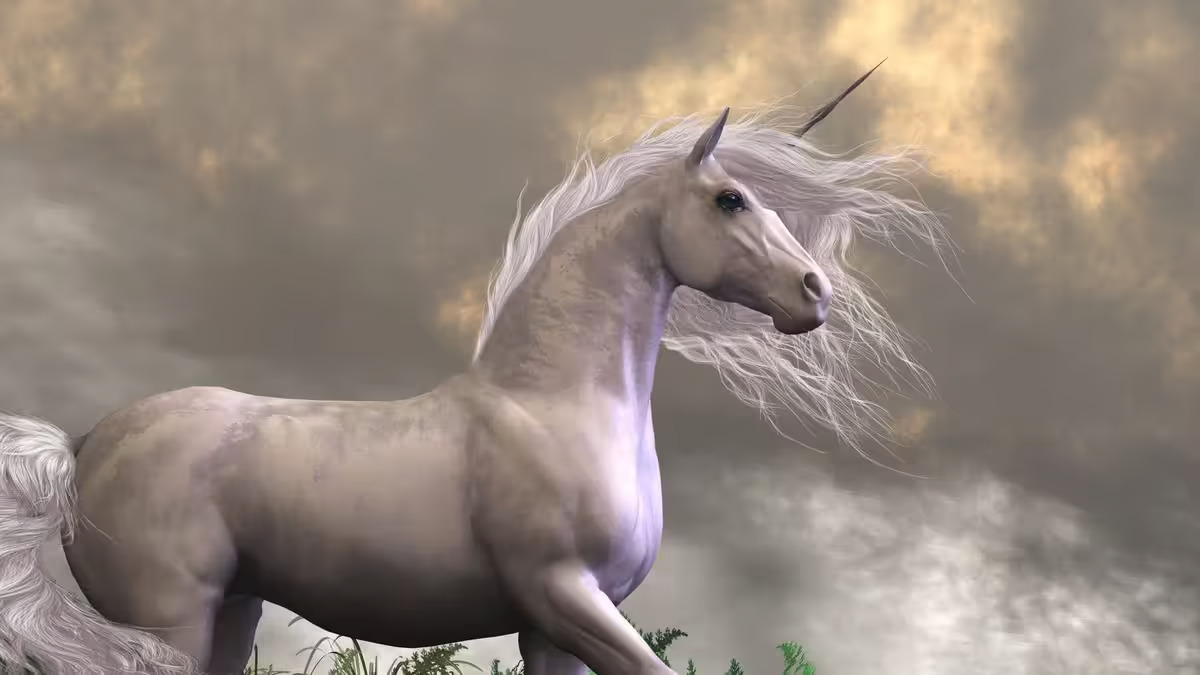
Ever wondered if unicorns are merely a figment of the imagination or if they hold a spot in the annals of history? Well, you're about to find out! Unicorns, with their majestic horns and mystical aura, have captivated hearts and minds for centuries. But what's the real scoop behind these mythical creatures? Are they just a product of folklore, or is there more to their story? In this blog post, we're diving into 20 enchanting facts about unicorns that will surprise, delight, and maybe even make believers out of skeptics. From their ancient origins to their symbolic significance across different cultures, get ready for a magical ride through the world of unicorns. Fasten your seatbelts, because this isn't your average fairy tale!
Key Takeaways:
- Unicorns have captivated human imagination for centuries, symbolizing purity and magic. They appear in art, literature, and film, and continue to inspire wonder and enchantment in our world.
- Unicorns represent freedom, beauty, and mystery, encouraging us to believe in the impossible and pursue our dreams with courage. Their enduring legacy reflects humanity's love for the mystical and magical.
What Exactly Are Unicorns?
Unicorns, often depicted as majestic creatures with a single, spiraling horn protruding from their forehead, have captivated human imagination for centuries. These mythical animals symbolize purity, grace, and magical power. Unlike the horses we see every day, unicorns are usually portrayed with a lion's tail and cloven hooves, making them unique in the realm of fantastical beasts.
The Origin of Unicorn Legends
-
The belief in unicorns isn't a modern invention. Historical accounts of these creatures date back to ancient civilizations, including the Greeks and Romans. They were not seen as mythical beings back then but real animals, often described in natural history texts.
-
Unicorns were once thought to live in far-off, unexplored lands. Explorers and travelers would return home with tales of seeing these elusive creatures, fueling the myths and legends that surrounded them.
Unicorns in Medieval Times
-
During the Middle Ages, unicorns took on a symbolic meaning in Christian art. They represented purity and chastity, often depicted in the Virgin Mary's lap or enclosed in a garden, which symbolized her virginity.
-
The unicorn's horn was believed to have the power to purify water and heal sickness. This made unicorn horns extremely valuable, and many would sell narwhal tusks as fake unicorn horns for a hefty price.
The Cultural Impact of Unicorns
-
Unicorns have made a significant impact on popular culture, appearing in movies, books, and artwork. They are often seen as symbols of magic, wonder, and otherworldliness.
-
In modern times, unicorns have been adopted as a symbol of the LGBTQ+ community, representing uniqueness and pride in one's identity.
Unicorns Around the World
-
Different cultures have their versions of the unicorn. For example, in Chinese mythology, the Qilin is a creature with similarities to unicorns, known for bringing good luck and prosperity.
-
In Scotland, the unicorn is so revered that it was chosen as the national animal. This highlights the creature's importance in Scottish heraldry and symbolism.
The Science Behind the Myth
-
Scientists believe that the unicorn myth may have been inspired by real animals. The extinct Elasmotherium, a type of rhinoceros with a large single horn, is a likely candidate.
-
Another theory suggests that sightings of unicorns were actually misidentified antelopes or deer with a single horn due to injury or genetic mutation.
Unicorns in Literature and Film
-
Unicorns have been a popular subject in literature for centuries, from medieval texts to modern fantasy novels. They often represent purity, innocence, or a connection to the magical world.
-
Films like "The Last Unicorn" have brought these mythical creatures to life for new generations, showcasing their enduring appeal in storytelling.
The Unicorn in Art
-
Throughout history, unicorns have been a favorite subject of artists. They appear in tapestries, paintings, and sculptures, often surrounded by an aura of mystery and magic.
-
The famous Unicorn Tapestries, housed in the Metropolitan Museum of Art, depict the hunting of a unicorn, showcasing the animal's significance in medieval lore.
The Modern-Day Unicorn Craze
-
Today, unicorns are more popular than ever, with their images adorning everything from clothing and accessories to home decor. This trend reflects society's ongoing fascination with these mythical creatures.
-
Social media has played a significant role in the resurgence of unicorn popularity, with colorful, unicorn-themed foods and drinks becoming viral sensations.
Unicorns and Their Symbolic Meanings
-
Beyond their magical powers, unicorns symbolize freedom, beauty, and mystery. They encourage us to believe in the impossible and to pursue our dreams with courage.
-
For many, unicorns also represent a sense of escape from the mundane aspects of life, offering a glimpse into a world where magic is real and anything is possible.
The Enduring Legacy of Unicorns
-
The universal appeal of unicorns crosses age and cultural boundaries. Their enduring legacy is a testament to humanity's love for the mystical and the magical.
-
As long as people continue to seek wonder and enchantment in their lives, unicorns will remain a beloved symbol of all that is beautiful and mysterious in our world.
A Glimpse into Unicorn Lore
Unicorns have always sparked our imagination, weaving their way through centuries of myths, art, and stories. These magical creatures symbolize purity, grace, and untamed freedom, captivating hearts across the globe. Whether you're a die-hard fan or just curious, the world of unicorns offers endless fascination. From their mythical origins to their modern-day resurgence in pop culture, unicorns remind us of the power of belief and the joy of wonder. They're not just figments of fantasy but beacons of hope and magic in everyday life. So, next time you come across a unicorn story or image, remember the rich tapestry of history and meaning behind these enchanting beings. Let's keep the magic alive, cherishing the sparkle and spirit unicorns bring into our world.
Frequently Asked Questions
Was this page helpful?
Our commitment to delivering trustworthy and engaging content is at the heart of what we do. Each fact on our site is contributed by real users like you, bringing a wealth of diverse insights and information. To ensure the highest standards of accuracy and reliability, our dedicated editors meticulously review each submission. This process guarantees that the facts we share are not only fascinating but also credible. Trust in our commitment to quality and authenticity as you explore and learn with us.


